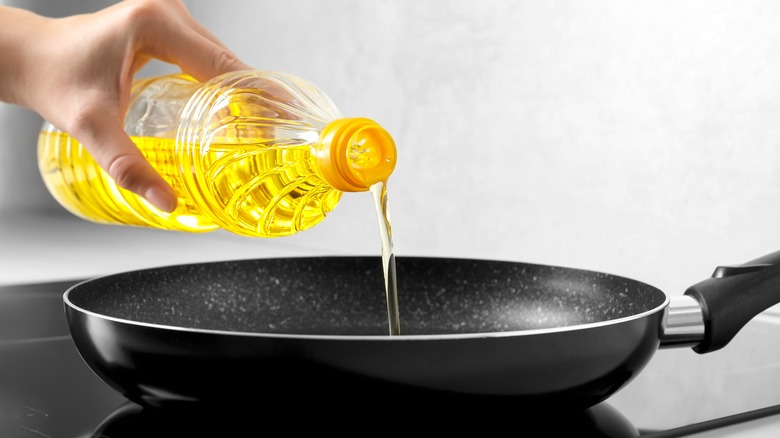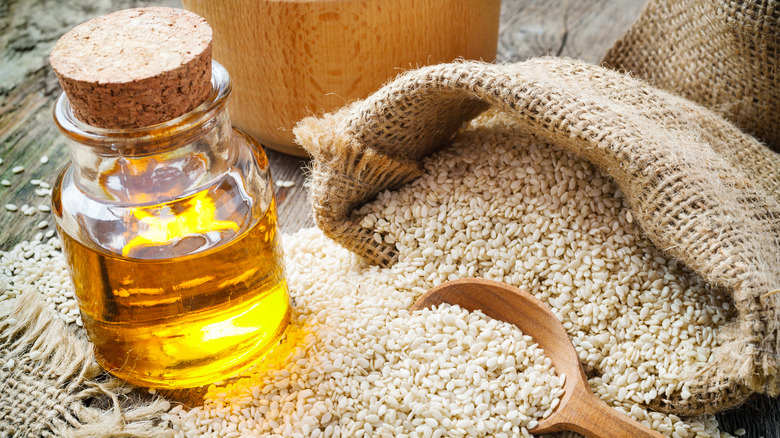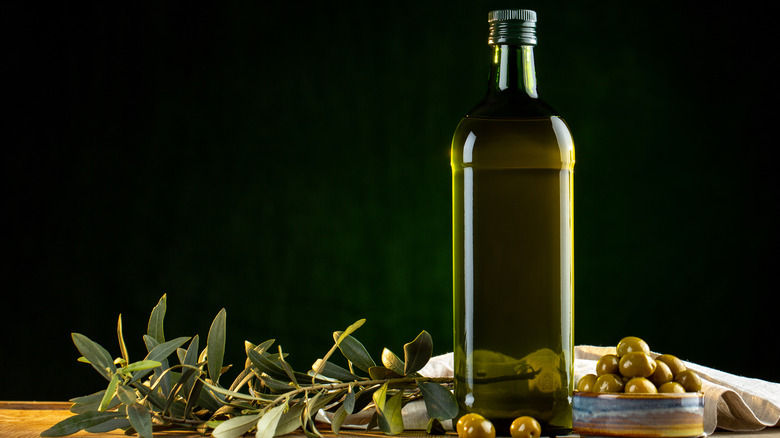Think Twice Before Storing Cooking Oil Near The Oven
There are so many tricks that can help when cooking with oils, but do you know how to properly store them? When you're finished using cooking oil to make whatever delicious meal you've whipped up, it's time to stow it away until you're ready to use it again. This is where you need to be careful, because if you don't store the cooking oil properly, it may go rancid sooner than its expiration date and become no longer suitable to use. This is especially the case if you store your cooking oil in a certain area of your kitchen: near the oven.
If you leave your cooking oil close to your oven, the heat that regularly emits from this appliance can accelerate how soon the oil becomes rancid. Heat exposure speeds up a natural process called oxidation, which will deteriorate the quality of your cooking oil, even if the oil is in an airtight container.
How to tell when cooking oil has gone bad
Rancidity is caused when oil comes in contact with oxygen, and can be accelerated by heat, light exposure, and time (all oils will go rancid eventually). Oil oxidation is a chemical process in which the cooking oil decomposes, resulting in a rancid flavor and aroma. When the heat from an oven contacts bottled cooking oil, oxidation reaction rates increase. Not only does this strip the oil of its nutrients, but it also introduces the presence of "free radicals," which are thought to increase risks to long-term health, according to The Detroit News. If you've already left cooking oil stored near your oven for an extended period of time, there are other ways you can tell if your cooking oil has succumbed to oxidation.
If you notice that your cooking oil has developed a sharp taste, it might be a sign of oxidation. Leandro Ravetti, joint CEO of Cobram Estates olive oil, told Real Simple, "If the oil tastes or smells like stale nuts, wax crayons, old lipstick, Play-Doh, or off meat, and leaves you with a fatty and waxy mouthfeel, the oil is likely rancid." A noticeable change in the consistency of the fluid of your cooking oil also means that oxidation has affected its viscosity. To avoid oxidation occurring in your cooking oil while it's stored, simply store your cooking oils in the areas that are most suitable for safe and long-lasting use.
How to properly store different cooking oils
The are different ways to optimally store different cooking oils, such as some infused olive oils, which typically belong in the fridge. Mary Mori, VP of technical services at California Olive Ranch, recommended to Real Simple to keep extra virgin olive oil in a kitchen cupboard, and once you open it, use that oil by 30 to 60 days. Extra virgin olive oil should be kept in a cool, dry place, and stored in its original dark green container or box, which can help protect the oil from being degraded by ultraviolet rays. When it comes to storing coconut oil, Chefs Life Oils founder Brian Malarkey told Real Simple, "Coconut oils should be stored in a cool, dark place that's also dry — preferably a pantry."
Fancy nut oils, such as walnut oil, hazelnut oil, or pistachio oil, should generally go in the fridge, as their higher unsaturated fat content makes them more sensitive to oxidation. Sara Heilman, culinary development manager at EveryPlate, shared a tip with Real Simple for storing sesame oil: "I always store my sesame oil in the fridge to help extend the shelf life [...] I recommend storing sesame oil in the bottle it is purchased in."


